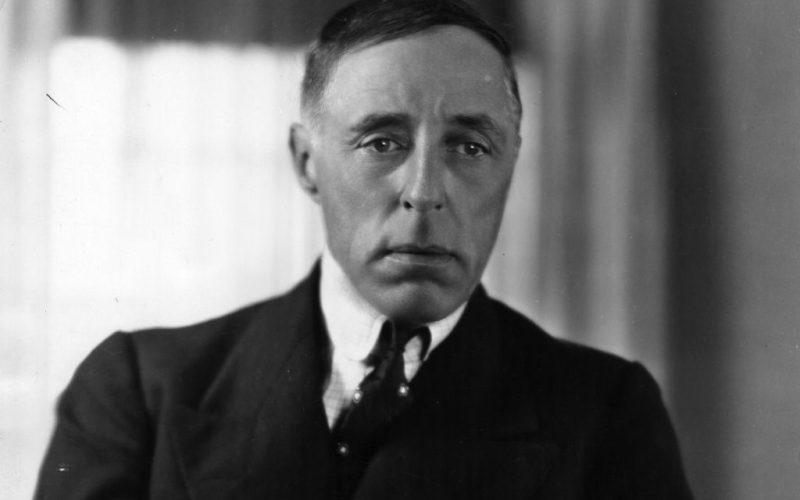Prior to his premature death at age 45 in 1955, James Agee was our most artful composer of film criticism, and what he recommended, one would do well to check out.
It might seem quaint now, but Agee believed that film as an art form never reached a higher level than it had before the advent of sound, and the finest of directors — the man who had a bigger influence on movies than anyone else — was D.W. Griffith, who entered into this world on Jan. 22, 1875 in Oldham County, Ky., and stands as a pariah here in the latest iteration of said world.
That Stygian status is primarily a result of Griffith’s 1915 epic, “The Birth of a Nation,” in which the Ku Klux Klan play the role that would later belong to the cavalry in 1950s Westerns; that is, they intercede as if delivering much-needed justice, which numbers as among the most warped ironies in cinema.
People who have never seen a Griffith film deride him as a devil without any redeeming qualities. We like to do this — throw ourselves atop the pile, as it were. We have expressions like “the right side of history,” which is fine, and no one wants to suggest that any assemblage of wrongs can eventually produce something right, but Griffith makes for a useful example when it comes to a vital skill to have — in these times more than any — and which few do.
This would be the ability to compartmentalize. We’re quick to efface someone’s presence on account of a slight, an offending remark, a time they let us down, an oppositional viewpoint on a topic — or a president — we’ve determined is a “my way or the highway” type of deal, without using those actual words.
We can’t live like this — or, rather, we can’t live well in such a fashion. It’s important to consider what that person brings to our lives. Boxes. The bad stuff belongs in that box, the good stuff in another one. When it feels like we’ve been rammed down deep into the former, it’s advisable to think about the latter, because each of the boxes will have their turn.
Griffith will teach you much about cinematic creativity. He got the camera moving, and while “The Birth of a Nation” is truly problematic, it’s also an ideal subject on which to hold a conversation.
Think of a classroom. When the students are raising their hands to participate in a dialogue, we have learning. No matter what the putative topic of discussion is; this is how we grow as, well, a nation.
About Griffith, Agee wrote: “The frame was always full, spontaneous, and lively. He knew wonderfully well how to contrast and combine different intensities throughout an immense range of emotion, movement, shadow, and light.”
Contrast is essential to understanding. Our foremost poets have always understood that the sacred and profane ride best when they ride together. Otherwise, we can be unsure where we stand. And when we’re unsure of that, it’s harder to move forward. The natural state of life is that of incongruity; thus, better have your boxes ready.
In 1916, Griffith released the 210-minute “Intolerance.” If you think a three-and-a-half plus hours silent film can’t be thrilling, have a gander and find yourself disabused of the notion.
The film is about love and, perhaps paradoxically, tolerance. It’s a movie that having seen it, you then think how you wouldn’t have wanted to miss out on ever having that experience in your life. This is a work — a power — from out of the good box.
Compartmentalization stops us from numbering among our own enemies. We are less likely to cost ourselves from experiencing that which is useful and edifying, as well as people who can help us. But we need mental discipline, and we have to work at keeping our boxes separate. Don’t dump the contents of one into another.
But doing so proves easier over time and with practice, like everything. What we partake of with a film, a book, a record — what we’ll allow ourselves to — may help us in an increasingly splintered world. Compartmentalization allows us to decide rather than be governed by knee-jerk reactions.
And when we do that, our very selves come together better than they would have otherwise over the course of our lives, not unlike the final portion of “Intolerance” itself.
Fleming is a writer.








